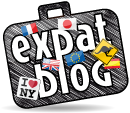The currency of Venezuela is called the Bolivar and it is magical. There are four different exchange rates and countries such as the USA will not exchange Bolivar for Dollars. That is correct, Bolivares are just colorful pieces of paper once you cross the border. There are three government regulated exchange rates and a fourth free market exchange rate. This makes for a very interesting situation when trying to exchange money and determine the actual cost of items if you are from out of town.
A brief explanation of the different exchange rate is below.
Official: 6.3 Bolivar equals 1 Dollar
This is a fixed exchange rate. This number is used to import items such as medical supply and basic food items. This is what you get if you use an ATM to withdraw from a foreign account. Assuming your bank card will even work at an ATM here.
SICAD I: 11 Bolivar (more or less) equals 1 Dollar
This rate does fluctuate a little bit but stays right around 11 Bolivar for now. This rate is for the other imported items and citizens wanting to travel abroad. You must apply for this amount with the bank and you may be denied. An individual can only receive a maximum of $3,000 a year at this rate and must provided proof of travel.
SICAD II: 50 Bolivar (More or less) equals 1 Dollar
This is the newest exchange rate implemented by the government. It was supposed to help curb the rapidly increasing black market rate and it has to an extent. While this is supposed to be a floating rate that mimics the actually value of the Bolivar this rate as continually dropped from 55 to 49 while the black market has increased. Again you must apply to exchange you money at this rate and it is possible to be denied, but this rate has no cap on the amount you can exchange if approved.
Free Market: 76 Bolivar (And increasing) equals 1 Dollar
This is based on a long line of complicated calculations which can be found on Dolar Parelelo website. Almost anything in the store that is imported will be set to this price. For example a dvd player that cost $50 will have a price tag of about 3,800 Bs. However some items such as smartphones are significantly higher in price here than back home. Just yesterday a Galaxy S5 was for sell 69,000 Bs. about $900 at this exchange rate. Oh and it is illegal.
Anyone planing on visiting needs to understand how this will effect them. So lets take a look at a typical touristy adventure such as a trip to Angle Falls for my example. In November 2013 a 3 day trip cost about 9,000 Bs. At the official exchange rate this would be $1,428 vacation, however at the black market rate this would be a $118 vacation. While the official price isn't bad if you consider how much most epic tourist adventures cost, it gets a bit more dicey for daily living costs. A weeks worth of food for a family of 4 will cost approximately a month's minimum wage about 4,500 Bs. That is a difference of $741 to $59. And that price has increased in the past few months. Most imported items are becoming more difficult if not impossible. Items such as toilet paper, soap, coffee, milk, butter and pasta are no longer on shelves at the supermarket. I can write a whole other post on things not found at stores any more, but that is for another time.
Last thought of the day: How would you feel living in country where you have to fill out stacks paperwork proving where you are going and talk with a bank representative just to exchange your money so that you can receive your allocated amount of dollars each year to visit your family abroad?











